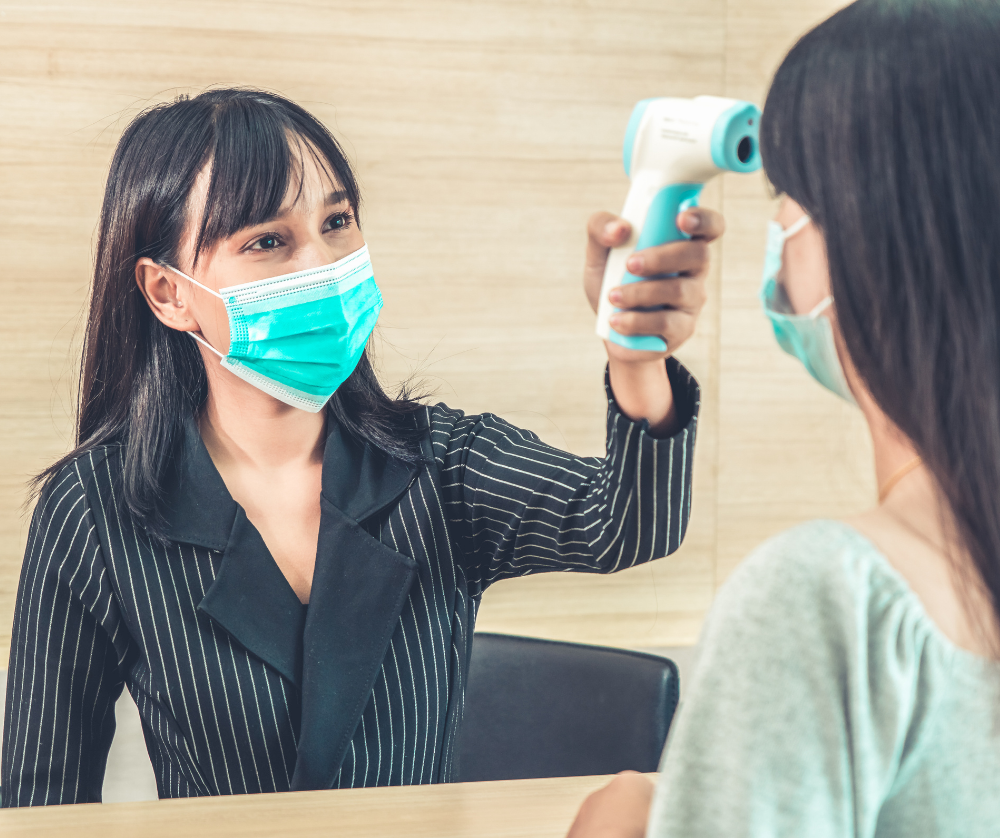Importance of Masks in Practice
Posted by amess on Sep 8th 2020
Since the start of the coronavirus pandemic, many things have changed. One of the most impactful changes in everyday life is the mask regulation. Masks have become a public policy to help flatten the curve and slow the spread of COVID-19. However, not all municipalities are enforcing this recommendation, and some people are refusing to comply.
Why Masks?

Many health organizations like the World Health Organization (WHO) and the Center for Disease Control and Prevention (CDC) recommend everyone wear some kind of face protection in public. Face protection includes face masks, face shields, scarves, and just about anything that blocks the expulsion of respiratory particles responsible for spreading COVID-19. When it comes to enforcing them in your practice, it’s recommended to follow your local health officials’ guidelines.
Why Not Masks?
While most health experts recommend everyone wears masks when in public or social distancing is unattainable, some people are not following their recommendations. Some people refuse to wear a mask because they see it as an infringement on their freedoms, while others don’t wear one because of pre-existing health concerns that make breathing difficult. Others have begun experiencing occasional dry eye due to masks. The CDC also recommends children under 2 not wear a mask, as well as anyone who is unconscious, incapacitated, or otherwise unable to remove the mask without assistance.
What If Patients Won’t Wear a Mask?
As an eye care provider, you see many different kinds of people in your practice, and this might include people who don’t want to wear a mask or people wearing the wrong kind of face protection. Here’s how Mark Wright, OD, FCOVD, and Carole Burns, OD, FCOVD suggest handling it if such a situation arises in an article written in Review of Optometric Business (ROB).
Notify Your Patients Before Entering the Practice
First and foremost, you need to let all patients planning on coming into your practice know what’s expected of them. Be as specific as possible, explaining that face protection is required, what kinds of face protection will be allowed, and what happens if they don’t comply. The ROB article even goes as far as suggesting a new patient form that they fill out and sign along with their other intake paperwork, and some practices have simply added this communication to other forms.
Prepare Your Staff
Staff members will be heavily involved in helping to monitor patients upon entry and throughout the practice. Make sure you cover your new practice policies when it comes to masks, and what to do if patients aren’t in compliance with these policies. Jobson Medical Group shared a helpful staff education video that breaks down how to handle these situations.
Wrong Type of Face Protection

Some people may be thinking that they’re wearing protection, but not all face masks protect equally. Newsy posted a helpful video which demonstrates the effectiveness of popular types of face protection. Knowing which offer the best and worst protection can help you keep you, your staff, and patients safe.
The article suggests keeping a surplus of disposable surgical masks at the front desk. That way, you can catch people as they’re entering the office. It’s important to encourage the wearing of masks by thanking them for wearing protection in the first place but ask that they wear the surgical mask instead of theirs. Explain that it’s practice policy and thank them again for helping keep everyone safe.
Refusing to Wear Face Protection
When a patient arrives without any kind of face protection, immediately offer them a disposable mask from the front desk. If they refuse, remain calm and polite, explaining that the masks are for everyone’s protection, not just theirs. This is especially true for those patients at high risk who may also have other complications that make wearing a mask difficult. If they continue to refuse, you must consider the safety of other patients and staff members. This may require making the difficult decision to turn them away.
When it comes down to it, the health of your patients is the most important thing in your practice. This extends to their overall health and wellbeing, and that’s why enforcing these kinds of safety policies is so important.
Read more lessons learned after reopening since the COVID-19 shutdown.

